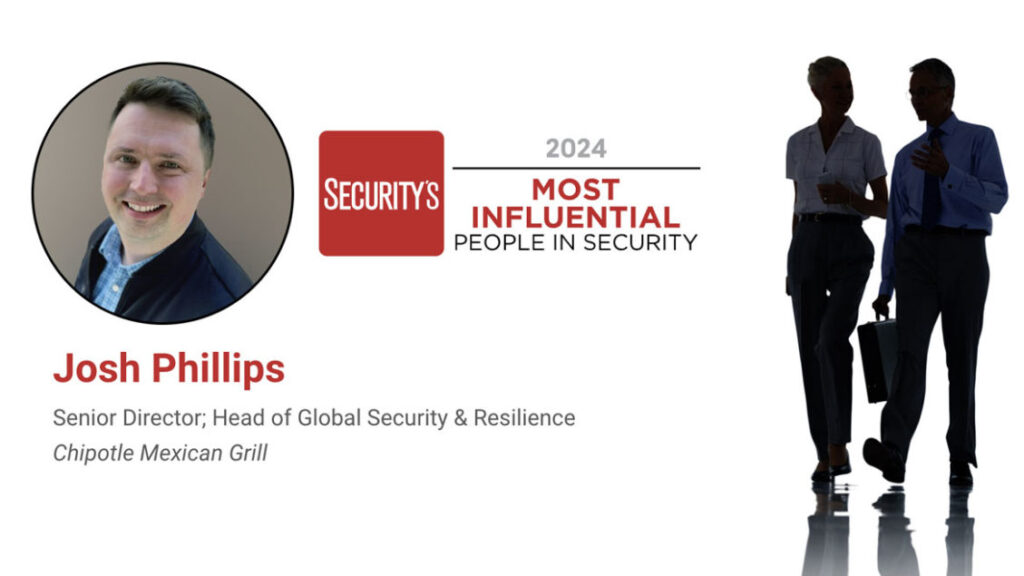
Protect and serve
When it comes to entering the security industry, Josh Phillips says a lot of people either get into it on purpose or fall into it “accidentally”.
“I’m in the latter category,” he says with a laugh.
After high school, Phillips knew he would need to work his way through college and started looking for available jobs and discovered the local Walmart had an in-store loss prevention associate job opening.
“I decided to apply for it because it sounded cool and ended up really liking it,” Phillips says. “And I’ve been in the security asset protection industry — in some form or fashion — pretty much ever since. Phillips has led security or asset protection teams for Fortune 500 companies, being promoted into the roles both times. Throughout his career, Phillips has held a variety of roles from a medic in the Indiana Air National Guard to senior and executive level asset protection titles with Liz Claiborne, Bath & Body Works, and most recently with Chipotle Mexican Grill.
Phillips enjoys working in the security field and the ability to help people on a daily basis is a driving force in his career.
“I really love protecting people, I get a lot of satisfaction out of knowing that we have created a safe workplace where people can come and do their best work,” Phillips says. “The tagline mission statement of our team is that ‘We create safe spaces where people can thrive’, that’s our mission and I take that very seriously.”
I really love protecting people, I get a lot of satisfaction out of knowing that we have created a safe workplace where people can come and do their best work.
In his current role as Senior Director; head of Global Security & Resilience at Chipotle, Phillips is the global security and business continuity function leader reporting to the CFO and supporting more than 3,500 restaurants and 120,000 people worldwide. Phillips oversees a growing security operations center, executive people protection, travel, event, and corporate security capability, fraud and threat investigations, and a field asset protection team as well as the organization’s workplace violence prevention and business continuity programs.
“The thing I love about security is the grey areas,” Phillips says. “In our industry there is a lot of our jobs that are black and white — the store has to be locked, the money has to be over here — and if you create processes that keep those things locked down, and black and white, and you can really put your energy into the gray area and that’s where security gets creative, where you’re tackling novel challenges. You have to partner closely with the business leaders to come up with a solution for a unique problem. I think from the outside people would think our job is all black and white and quite simple and I think any security leader practitioner would tell you, it’s the opposite. The fact that you have to stay on your toes is what keeps me in it.”
Supporting the community
In addition to his role with Chipotle, Phillips believes it is important to give back to the community and support other within the security industry. To that end, Phillips has been a volunteer leader with various employee affinity and resource groups and currently serves as a board member of the Restaurant Loss Prevention and Security Association (RLPSA). Phillips is also the executive sponsor of Chipotle’s pride resource group and serves as committee chair on the Global Security Pride committee with OSAC.
“Global Security Pride is specifically focused on creating more inclusive workplaces within the security field for LGBTQIA+ security professionals,” he says. “I’ve been overwhelmed by how important this organization is to security practitioners around the world, it’s a place for them to feel comfortable sharing and being themselves within the security landscape.”
Providing support, working with other security leaders and mentorship are key elements to growing talent in the security industry Phillips says.
“You can’t know everything, you can’t know all of the threats that exist to your business so having a network of people you can lean on is really important,” he says. “I think to be a good mentor, you’ve got to listen to the other person and help guide their thought process rather than just giving advice.”


